Mercator Ocean International (MOi) has been entrusted with the implementation of the EU4OceanObs project by the European Commission since October 2020. In the process of transforming into an intergovernmental organisation, MOi is a non-profit international organisation committed to building a science-driven Digital Ocean and providing ocean services of general interest focused on the conservation of marine environments and the sustainable use of marine resources. The organisation develops complex ocean simulation systems (numerical models) based on ocean observation data (satellite and in situ) that are able to describe, analyse and forecast the physical and biogeochemical state of the ocean at any given time, at the surface or at depth, on a global scale or for a specific zone, in real-time or delayed mode.
“Ocean Observation is vital to understanding and predicting the evolution of our climate, and to sustainably manage the ocean and its resources. This a major international challenge. Mercator Ocean International is thrilled and proud to work with the European Commission to strengthen EU contribution and influence in two major international activities related to ocean observation”, says Pierre -Yves Le Traon, Scientific Director – Mercator Ocean International
MOi – an entrusted entity across the ocean observing value chain
Since its inception in 1995, MOi has been an integral part of the international ocean observing and forecasting community. MOi is entrusted by the European Commission to implement the Copernicus Marine Service (providing free ocean data, information and services to support policy and marine and maritime applications); Copernicus WEkEO Data Information and Access Service (environmental data from all Copernicus Services and Sentinel portfolio and digital cloud computing); Copernicus Coastal and Arctic Hubs (data and information from all Copernicus Services related to European coasts and the Arctic ecosystem, respectively), the European Digital Twin of the Ocean (data lake, HPC and cloud computing services, advanced modelling suite and simulation environment to support twinning applications and on-demand simulations of what-if scenarios). MOi also hosts the OceanPrediction Decade Collaborative Centre aimed at strengthening and co-developing ocean prediction activities on a worldwide scale by coordinating and stimulating efforts in the framework of the Ocean Decade. Through EU4OcenaObs, MOi brings its expertise in the interface with international ocean governance, working with international partnerships towards coordinated, sustained and fit-for-purpose global ocean observations. Thus, MOi works across the ocean observing value chain, strongly engaging with the marine science community and marine stakeholders in Europe and on the international scene.
MOi’s growing contribution to EuroGEO and GEO
EuroGEO is Europe’s part of Group on Earth Observations (GEO), reuniting and coordinating activities in Europe contributing to GEO’s mission to co-produce user-driven Earth intelligence solutions that inform decisions and accelerate action on global, societal, and environmental challenges. Thanks to the vast knowledge gained through the EU’s Earth Observation Copernicus programme and others, EuroGEO enables Europe to position itself as a global force in Earth observation. MOi has been at the forefront of harnessing the power of Copernicus on the ocean theme, as the entrusted entity selected to implement and develop the Copernicus Marine Service on behalf of the EU. Consequently, MOi has been involved in the GEO ministerial summits over the years, and in 2019 officially become a Participating Organisation of GEO.
In 2020, MOi reinforced its commitment by setting up and leading the EU action coordination of GEO’s Blue Planet Initiative, through the EU4OceanObs project. GEO’s ocean and coastal arm, the Blue Planet initiative connects ocean and coastal observations and data with stakeholders’ needs for information. The European Office works to ensure better uptake and visibility of relevant European actions, contributions and priorities within GEO Blue Planet and the wider GEO community in close relation with EuroGEO.
MOi support to EuroGOOS and GOOS
Led by the Intergovernmental Oceanographic Commission (IOC) of UNESCO, and co-sponsored by the World Meteorological Organisation (WMO), the United Nations Environment Programme (UNEP) and the International Science Council (ISC), the Global Ocean Observing System (GOOS) is the permanent global system for observations, modelling, and analysis of marine and ocean data. MOi, together with Ifremer and Météo-France, is also one of the three French members of EuroGOOS, the European component of GOOS. In 2022, MOi strengthened this collaboration by signing a Memorandum of Understanding with EuroGOOS to enhance cooperation in the promotion of ocean observations and the development of the European Ocean Observing System (EOOS) Framework. Through EU4OceanObs, MOi continues to provide indispensable coordination support to the G7 FSOI. The EU action coordination of the G7 FSOI established by MOi works closely with EuroGOOS and GOOS to pilot efforts where the FSOI can add unique value addressing ocean observation gaps and requirements based on EU priorities and interests.





